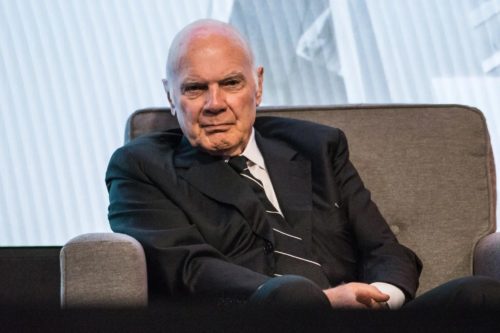ON JULY 21, the Empire State Development Corporation Board unanimously approved the Pennsylvania Station Area Civic and Land Use Improvement Project. The always conservative and sometimes populist New York Post reported that Vornado Chair Steve Roth “donated $69,700 to Hochul’s re-election campaign in December, just one month after she announced her intention to advance the project, which was crafted by her disgraced predecessor, Andrew Cuomo.” More Here
IN THE CITY JOURNAL, Nicole Gelinas writes,
The concept, which has been around since the Cuomo administration, appears elegant enough: let commercial developers build eight tall towers around Penn Station, a major regional commuting hub that, pre-pandemic, processed 600,000 daily trips, and then use the tax dollars generated by that development to improve the station itself. The project would turn the cramped, dark, multilevel space into a single airy floor, build new entrances as well as more escalators and elevators, and allow room for an aboveground public plaza and “shared streets,” including bike lanes, to untangle traffic. As the mayor said this week, “the new vision for Penn Station is to our generation what the Empire State Building was to previous generations: a symbol of our resiliency and a project that will define our city for decades to come.” Indeed, it will define the city, and the state, too—as having bloated and opaque governments that revel in conferring special favors.
Here’s how public infrastructure investment should work: let’s say the state and city determine that, despite New York’s current 35.7 percent office-worker occupancy and subway and commuter-rail ridership stuck at about 60 percent of normal capacity, Manhattan will recover its office market in the next decade or so and continue to be a regional destination for white-collar workers indefinitely. The state and city could help that future along if they make Penn Station more pleasant for commuters. In that case, the state and city could borrow against future tax and fee dollars to make these long-term investments. For example, the city could borrow implicitly against future property-tax revenues and supplement this funding with state and federal infrastructure grants. These federal, state, and city investments would make the surrounding private-sector property worth more over time, especially if the city were to rezone the surrounding area to allow private-sector owners to build more modern towers. Presto, a municipal-finance miracle: the city’s resulting higher property-tax revenues, plus higher state and city income- and sales-tax revenues from new commuters, would allow the state and city to repay the debt incurred for the investments.
But that’s not what the city and state are doing. Instead, they’re taking a Rube Goldbergian approach that makes no sense except from the perspective of municipal cronyism. Rather than reaping higher property taxes resulting from a revamped Penn Station and surrounding area, the city will sign the land over to the state for up to 80 years. The state, in turn, promises to make up for the lost revenue via a new annual subsidy payment to Gotham.
In practice, this deal means that the city is giving up a big chunk of its predictable, stable property-tax revenue—the only local tax that the city, not the state, controls, and one that accounts for nearly half of Gotham’s annual tax dollars. In exchange, the city will depend more than it already does on a far more volatile revenue source: state income and sales taxes, which fluctuate more with business cycles.
The City Journal is published by the Manhattan Institute, a conservative think tank. Opposition to Real Estate State economic policies is bringing together conservatives, progressives, and liberals against Neo-Liberal Crony Capitalism, although Roth gives far more money to Republicans than Democrats. In “Strange Penn Fellows” the Daily News reported that Roth gave $560,800 to Trump and his campaigns between 2016 and 2019 and recently donated $460,000 to Republican efforts to retake Congress in 2020. Individual recipients include Lauren Boebert and the only New York congressperson to oppose same sex marriage. At Penn Station, Vornado will get a massive upzoning and the Empire State Development Corporation will work with the REIT to get control of more land around the station with little public oversight for the low, low price of $69,700. $1.2 billion dollars in tax breaks have been promised too.
Vornado talks about the “Vornado Penn Campus.” Neighbors call it “Vornadoland.” It all brings to mind Pottersville in “It’s A Wondefrul Life.”
